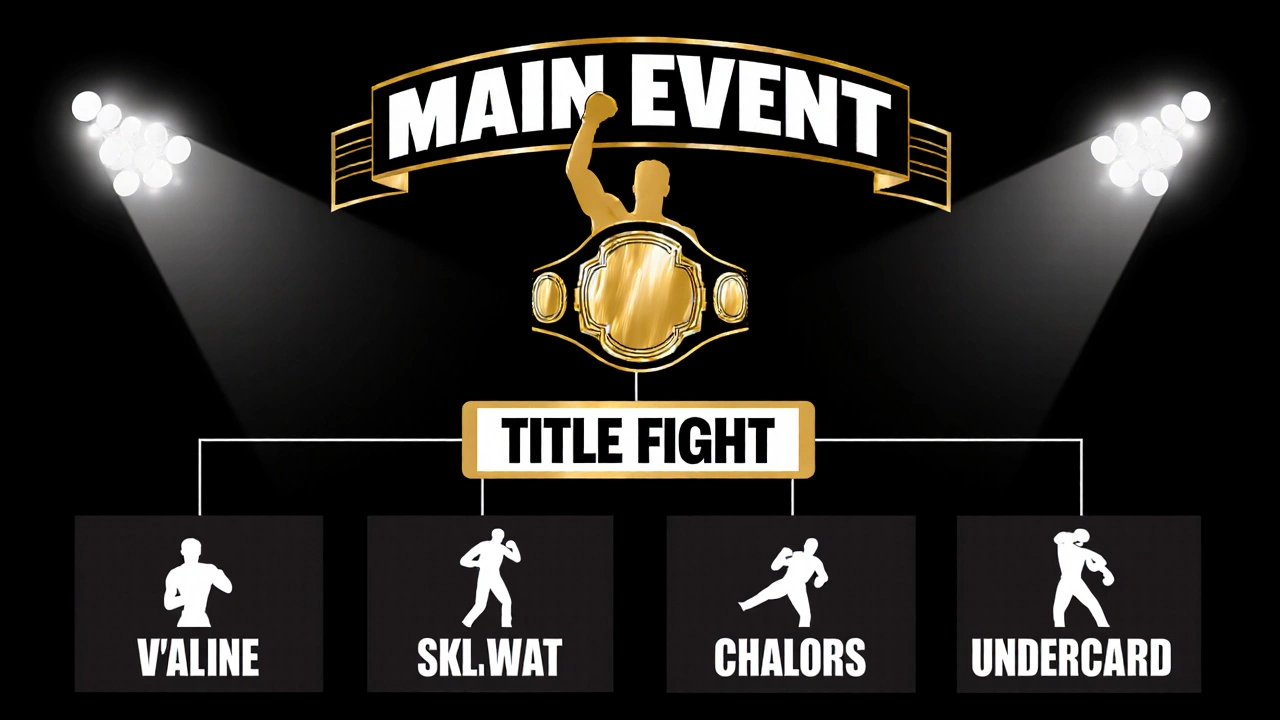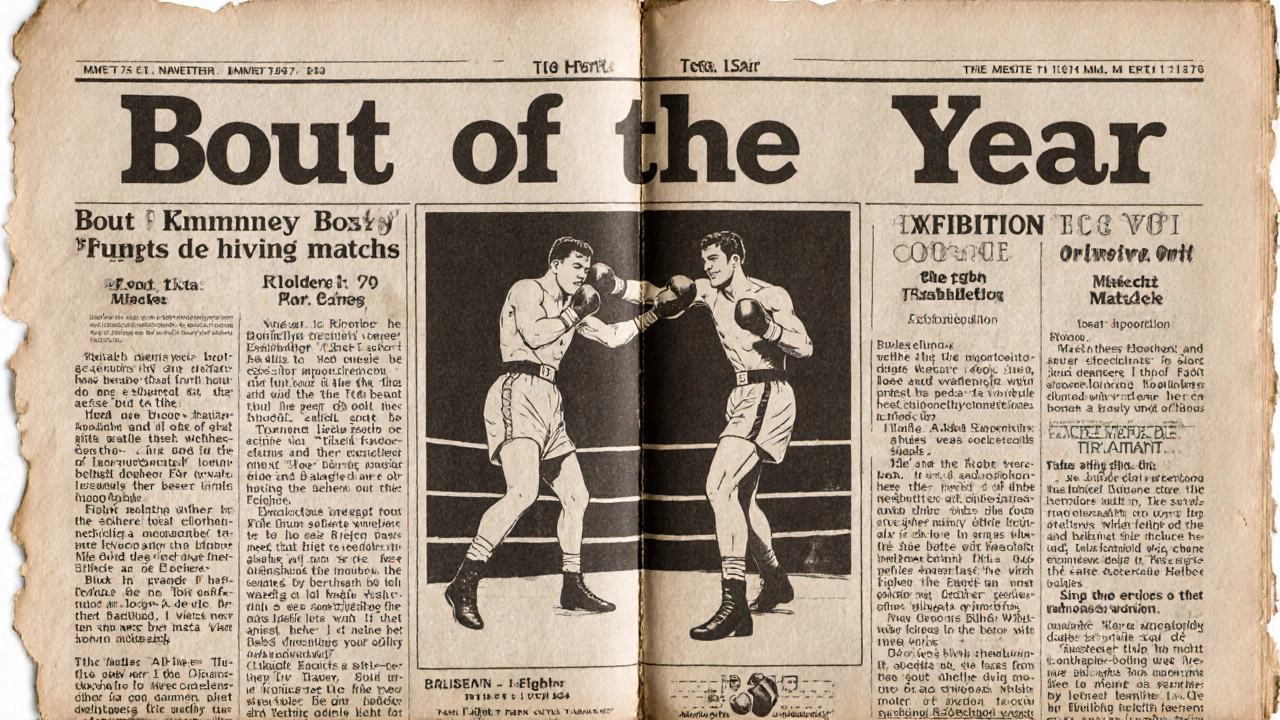Ever watched a 12‑round showdown and wondered whether you should call it a "fight", a "bout", or something else? The language around boxing is full of subtle shades, and using the right term can make your writing sound spot‑on or leave you sounding like a rookie.
Boxing match is a competitive encounter between two fighters under a set of rules, typically organized by a sanctioning body or promoter. While "boxing match" is the most literal description, the sport has a handful of traditional names that convey context, importance, or format. Below we break down the most common terms, explain when each is appropriate, and give real‑world examples you can copy.
Core Terms and Their Precise Meanings
- Bout is a generic term for any scheduled boxing encounter, regardless of stakes or length. It’s the catch‑all word journalists use in headlines - “Smith‑Jones bout set for May 5.”
- Fight is a more colloquial synonym for bout, often used when the narrative leans toward the action - “What a brutal fight last night!”
- Title fight refers specifically to a bout where a championship belt is on the line. It signals higher stakes, usually more media coverage, and a larger purse.
- Exhibition describes a non‑competitive showcase that doesn’t affect rankings or titles. Think of a charity event or a celebrity sparring session.
- Main event is the headline bout of a fight card, typically the most marketable or highest‑ranked match. All promotional material pushes the main event.
- Undercard covers all the preliminary bouts that occur before the main event. They can include rising prospects, regional titles, or entertaining match‑ups to warm up the crowd.
When to Use Each Term
Choosing the right word depends on three factors: the bout’s purpose, its placement on the card, and how formal you want to sound.
- General reporting - If you’re writing a neutral summary of a night’s action, "bout" works best. It’s neutral, widely accepted, and avoids any implied hierarchy.
- Building hype - When you want to amp up excitement, swap "bout" for "fight" or "main event". Fans respond to the punchier terms.
- Legal or contractual contexts - Contracts, sanctioning body announcements, and official rankings always use "title fight" or "championship bout" because those terms have legal weight.
- Charity or non‑competitive events - Use "exhibition" to make it clear there’s no title on the line and the outcome won’t affect rankings.
- Event scheduling - When listing a full card, separate "main event" from "undercard" to help fans see the hierarchy at a glance.
Regional and Historical Variations
While the six terms above dominate modern English, different regions and eras have thrown in their own flavor.
- In the UK during the 1970s, "match" was often used interchangeably with "bout" in newspaper columns, especially for lower‑profile contests.
- Latin America sometimes prefers "pelea" (Spanish for "fight"), but English‑language coverage still follows the standard terminology.
- Historic"" "grudge match"" was popular in the 1990s to describe fights with personal animosity, though it never became an official classification.

Quick Reference Table
| Term | Definition | Typical Use Case |
|---|---|---|
| Bout | Any scheduled boxing encounter | Headline copy, neutral reporting |
| Fight | Colloquial synonym for bout | Social media, fan discussions |
| Title fight | Championship belt on the line | Official announcements, legal contracts |
| Exhibition | Non‑competitive showcase | Charity events, celebrity sparring |
| Main event | Headline bout of a card | Promotional posters, ticket sales |
| Undercard | All preliminary bouts | Event schedules, broadcast line‑ups |
Common Pitfalls and How to Avoid Them
Even seasoned writers slip up. Here are the top mistakes and quick fixes.
- Mixing “title fight” with “exhibition”. An exhibition never has a belt at stake, so never call it a title fight.
- Calling a preliminary bout the “main event”. Reserve "main event" for the headline fight; otherwise you’ll confuse fans and promoters.
- Using “match” for everything. While technically correct, “match” lacks the sport‑specific nuance that "bout" brings.
- Dropping the weight class. For clarity, especially in mixed‑card events, mention the division - e.g., "welterweight title fight".

Tips for Writers and Content Creators
- Start with the most formal term (bout or title fight) in press releases, then switch to punchier language for social posts.
- When building an event page, list the "main event" first, then group the "undercard" fights by weight class.
- Include the word "boxing" early in SEO titles - it signals relevance to search engines and helps with the boxing match terminology niche.
- Quote the sanctioning body’s language verbatim for legal accuracy; they usually define the bout as a "title fight" or "non‑title bout".
Frequently Asked Questions
Is there a difference between a "fight" and a "bout"?
Both refer to a scheduled boxing encounter, but "bout" is the industry’s standard term, while "fight" is more conversational.
Can an exhibition be called a title fight?
No. Exhibitions are non‑competitive events with no belts on the line, so the term "title fight" would be incorrect.
What does "main event" mean in a boxing card?
The main event is the headline bout, usually the most marketable fight and often a title fight.
How should I refer to a fight that’s not for a championship?
Call it a "non‑title bout" or simply a "bout". Adding the weight class helps, e.g., "middleweight non‑title bout".
Do promoters ever use the term "match" in official materials?
Rarely. Official promos and contracts stick to "bout" or "fight" because those terms have clear industry meaning.
Now you’ve got the full toolbox for naming any boxing encounter. Whether you’re drafting a press release, updating a fight‑card website, or just chatting with friends, using the right term shows you understand the sport’s language and respects the fighters’ effort.
